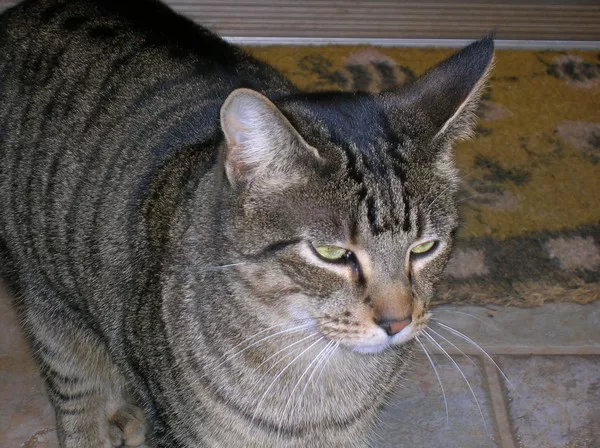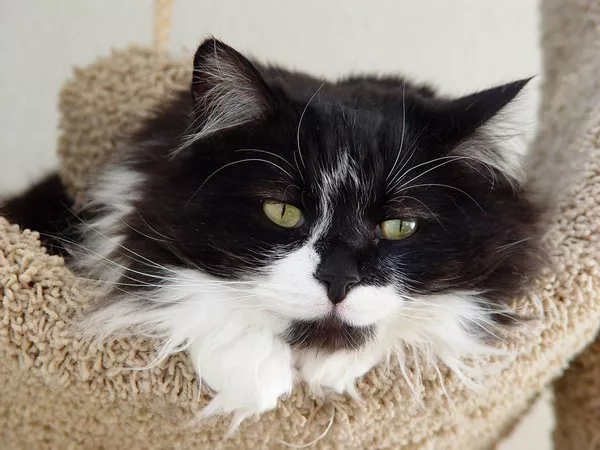Vaccination is a critical component of responsible pet ownership, particularly for kittens. The early weeks of a kitten‘s life are crucial for their development and health, and understanding the best time to vaccinate is essential for ensuring a strong immune response and long-term well-being. This essay will explore the various aspects of kitten vaccination, including the recommended vaccination schedule, the types of vaccines available, factors influencing vaccination timing, and the importance of adhering to a proper vaccination protocol. By the end of this guide, cat owners will have a thorough understanding of when and how to vaccinate their kittens to ensure they grow into healthy adult cats.
Understanding Kitten Immunity
Maternal Immunity
Kittens are born with little to no immunity. They rely on their mother’s colostrum—the first milk produced after birth—rich in antibodies, for passive immunity. This maternal immunity is crucial for protecting kittens during their early weeks of life.
Duration of Maternal Immunity: Maternal antibodies typically provide protection for the first 6 to 16 weeks of a kitten’s life. However, the exact duration can vary based on several factors, including the mother’s vaccination status and overall health.
The Importance of Vaccination
Vaccination is essential to stimulate a kitten’s immune system, helping it develop its own immunity against infectious diseases. Vaccines contain weakened or inactive forms of pathogens, which prompt the immune system to recognize and fight off these invaders without causing the disease.
Timing and Immune Response
The timing of vaccinations is crucial because maternal antibodies can interfere with a kitten’s ability to respond effectively to vaccines. If a vaccine is administered while maternal antibodies are still present, the immune response may be inadequate, leaving the kitten vulnerable to disease.
Recommended Vaccination Schedule for Kittens
Core Vaccines
Core vaccines are those that are recommended for all kittens due to the severity and prevalence of the diseases they protect against. The core vaccines include:
Feline Viral Rhinotracheitis (FVR): Caused by feline herpesvirus, this disease affects the respiratory system.
Feline Calicivirus (FCV): Another respiratory virus that can cause severe oral disease.
Feline Panleukopenia (FPV): Also known as feline distemper, this highly contagious virus can be fatal.
Rabies: A viral disease that affects the nervous system and is zoonotic, meaning it can be transmitted to humans.
Vaccination Timeline
The following is a general vaccination schedule for kittens:
6 to 8 Weeks: First FVRCP (Feline Viral Rhinotracheitis, Calicivirus, Panleukopenia) vaccine.
10 to 12 Weeks: Second FVRCP vaccine and the first rabies vaccine (if local laws permit).
14 to 16 Weeks: Third FVRCP vaccine and a booster for rabies.
16 Weeks and Older: Additional vaccines may be administered based on risk factors, including FeLV (Feline Leukemia Virus) if the kitten is at risk.
Non-Core Vaccines
Non-core vaccines are recommended based on a kitten’s lifestyle and risk of exposure to certain diseases. These include:
Feline Leukemia Virus (FeLV): Recommended for kittens that will be exposed to other cats, particularly in multi-cat households or outdoor environments.
Feline Immunodeficiency Virus (FIV): Considered for kittens at risk of exposure to infected cats.
Factors Influencing Vaccination Timing
Kitten’s Age
The age of the kitten at the time of vaccination is a primary factor in determining the vaccination schedule. Most veterinarians recommend starting vaccinations at 6 to 8 weeks of age to ensure timely protection.
Maternal Antibodies
As previously mentioned, the presence of maternal antibodies can affect how well a kitten responds to vaccines. Kittens with higher levels of maternal antibodies may require vaccinations to be delayed until they are older.
Health Status of the Kitten
Kittens that are ill or have compromised immune systems may require a modified vaccination schedule. It’s essential to consult a veterinarian to assess the kitten’s health before proceeding with vaccinations.
Environmental Factors
Kittens that are likely to be exposed to other cats or environments with higher disease prevalence may need vaccinations earlier. Conversely, indoor kittens with limited exposure may have different vaccination needs.
Importance of Following the Vaccination Schedule
Building Immunity
Following the recommended vaccination schedule is vital for building a kitten’s immunity. Each vaccine dose helps to strengthen the immune response, ensuring that the kitten is adequately protected against infectious diseases.
Preventing Disease Outbreaks
Vaccinating kittens on time helps to prevent outbreaks of infectious diseases within the community. High vaccination rates contribute to herd immunity, protecting not only vaccinated individuals but also those who cannot be vaccinated due to health reasons.
Legal Requirements
In many jurisdictions, rabies vaccination is required by law. Failing to vaccinate a kitten against rabies can lead to legal consequences and potential health risks for both the cat and the community.
Common Concerns and Misconceptions About Vaccination
Vaccine Reactions
Some pet owners worry about potential reactions to vaccines. While most kittens experience no adverse effects, mild reactions such as lethargy, swelling at the injection site, or a slight fever can occur. Serious reactions are rare but can happen. It’s essential to monitor your kitten after vaccination and consult a veterinarian if any concerning symptoms arise.
Overvaccination
There is a common misconception that vaccines can harm pets due to overvaccination. However, the benefits of vaccination far outweigh the risks. Vaccines are rigorously tested for safety and efficacy, and veterinarians follow guidelines to ensure that cats receive only the necessary vaccinations.
Delaying Vaccination
Some owners may consider delaying vaccinations, believing that it will be better for their kitten’s health. However, delaying vaccinations can leave kittens vulnerable to serious diseases. It’s crucial to adhere to the recommended schedule to provide timely protection.
Post-Vaccination Care
Monitoring for Reactions
After vaccination, it’s essential to monitor your kitten for any signs of adverse reactions. Most reactions are mild and temporary, but if you notice severe symptoms such as difficulty breathing, vomiting, or swelling, contact your veterinarian immediately.
Keeping Records
Maintain an accurate record of your kitten’s vaccinations, including dates and types of vaccines administered. This information is vital for future veterinary visits and for any legal requirements regarding rabies vaccination.
Follow-Up Appointments
Schedule follow-up appointments as recommended by your veterinarian. Regular check-ups are essential for monitoring your kitten’s health and ensuring that they receive any necessary booster vaccinations.
Conclusion
Vaccinating a kitten is one of the most important responsibilities of a cat owner. Understanding when to vaccinate, the types of vaccines required, and the factors influencing vaccination timing can help ensure that your kitten grows into a healthy adult cat.
By adhering to a proper vaccination schedule, monitoring your kitten’s health, and consulting with a veterinarian, you can provide the best possible start for your feline companion. Vaccination not only protects your kitten from infectious diseases but also contributes to the overall health of the feline community. With the right knowledge and proactive care, you can help your kitten thrive and enjoy a long, healthy life.
Related topic:

























